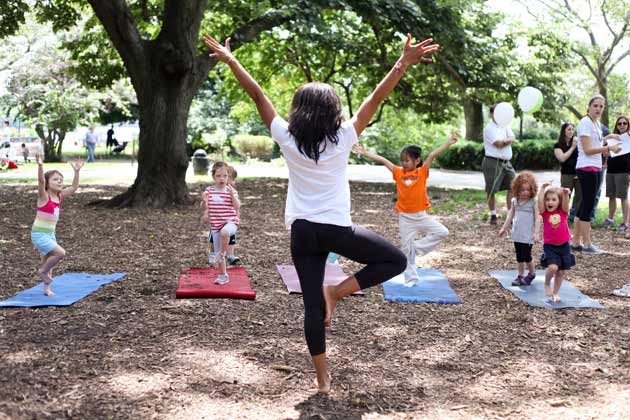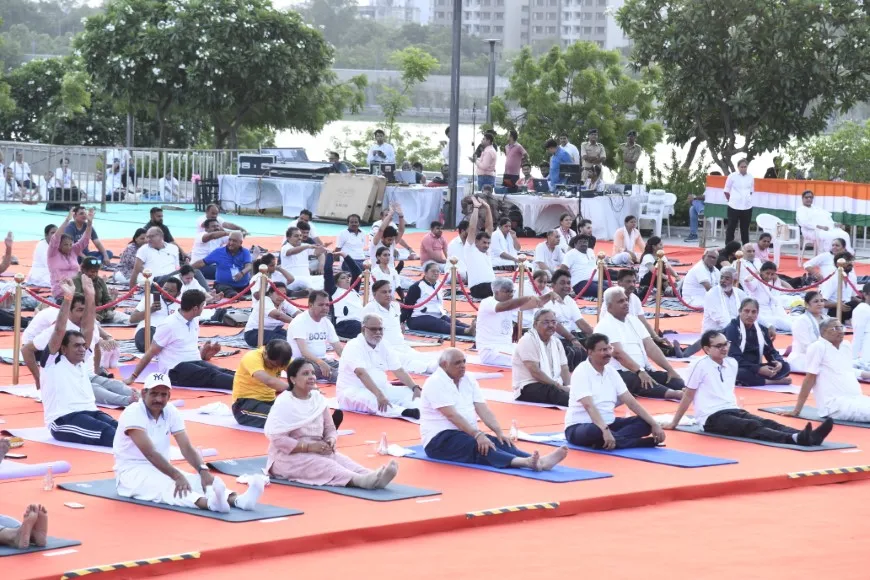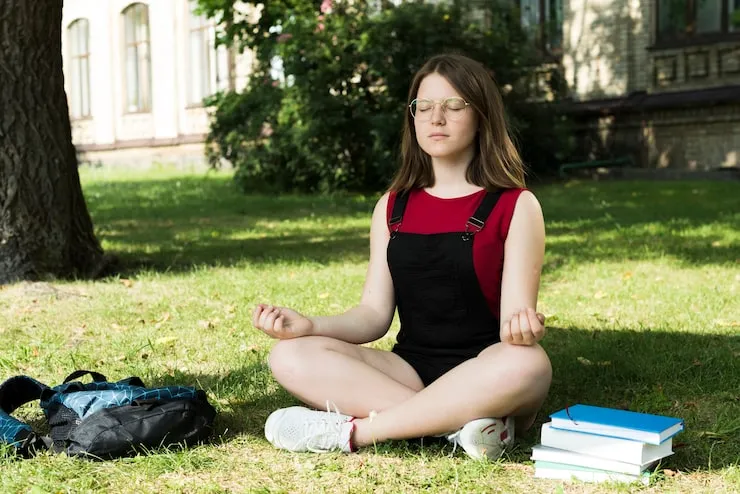1. A City Rises: The Beginning of a Movement
You wouldn’t expect 6 AM in Rajkot to echo with the playful giggles of children. Yet, at the city’s many summer yoga camps, that’s exactly the sound you hear. Rajkot, often known for its industrious hustle, is now also gaining attention for something quieter but just as important — a fight against childhood obesity. And not through strict dieting or harsh workouts, but with yoga mats, fruit bowls, and a little bit of laughter. This went beyond a single day of health awareness. The “Motaapa Mukt Gujarat” initiative slowly found ground in this busy city, backed by local volunteers, teachers, and health experts. Parents who once struggled with managing their child’s screen time or junk food habits, started noticing small, delightful changes. Kids who couldn’t touch their toes before were now chanting “Om” and doing downward dogs without flinching. The movement wasn’t loud, but it was consistent — and perhaps that’s why it worked.
2. Yoga as a Way of Childhood, Not Just a Class

Unlike typical sports or fitness drills, yoga was introduced not as a “do this or else” method. Teachers approached it gently. Each morning, instructors — often not much older than the students — would begin with playful breathing games. Children weren’t told to “meditate,” but they were asked to close their eyes and imagine flying kites or floating clouds. Strangely enough, they were more grounded by these ridiculous-sounding exercises than by rigorous posture modifications. One eight-year-old participant said something unexpected after her third session: “I feel lighter in my head, like I’ve cleaned it.” It wasn’t just physical weight the camp was targeting — it was the mental clutter of growing up with online distractions and constant stimulation. By weaving yoga into their playtime, Rajkot’s program made movement feel like joy, not a task. That changed everything.
3. What’s on the Plate: Shifting from Junk to Joyful Eating
Yoga alone wasn’t the hero. A parallel battle was waged on another front: food. Local nutritionists came in not to ban chips and sweets, but to tell funny stories about what our stomachs do when we overload them. One child said, “I didn’t know drinking cold drinks made my tummy feel tired.” Another claimed bananas were now “cooler than chocolate.” This wasn’t magic — it was smart storytelling. Cooking demos turned into events where children prepared simple fruit salads, tried sprouts for the first time, and even created funny names for veggies. “Broccoli Ninja” and “Carrot Power” weren’t comic book characters — they were lunchbox additions. When food becomes fun, change happens naturally. Families also got involved, with WhatsApp groups sharing quick recipes, local market hacks, and gentle reminders that healthy eating isn’t about money — it’s about habits.
4. Daily Wins: What 100+ Kids Showed Us Every Morning
You’d think getting kids to a 6:30 AM camp every day would be impossible. Turns out, not when they’re leading the charge. One mother mentioned that her son, who once resisted waking up even for school, was up before her now — already in his yoga t-shirt and ready to go. Another parent noted how their daughter’s breathing issues had reduced, and how she now demanded “fruit time” in the evening instead of snacks. The numbers were small at first — 15 or 20 kids. But as the weeks rolled on, attendance crossed 100 daily. That’s not just interest, that’s impact. The change wasn’t just in waistlines or BMI charts, but in attitude. Teachers noticed calmer students in school, parents saw improved digestion, and local pediatricians began praising the community-driven effort. The kids didn’t just learn yoga and eat better. They started owning their choices — and that’s when real health begins.
5. Beyond Rajkot: Can the Rest of Gujarat Learn from This?
If Rajkot can do it, can others follow? That’s the question buzzing now. Not every city may have the same infrastructure or volunteer base, but the approach — gentle, joyful, consistent — is what’s replicable. Government officials are already discussing similar models in districts like Bhavnagar and Jamnagar. And many rural schools are eager to adapt the same curriculum, especially with obesity rising even in smaller towns. What worked in Rajkot wasn’t just yoga or healthy eating — it was community. Camps didn’t run on big sponsors or celebrities. They thrived because of parents, local teachers, and enthusiastic kids. And that’s the secret formula: make health fun, not fearful. Let’s hope that soon, “Motaapa Mukt Gujarat” isn’t a goal — it’s just how children grow up across the state.













